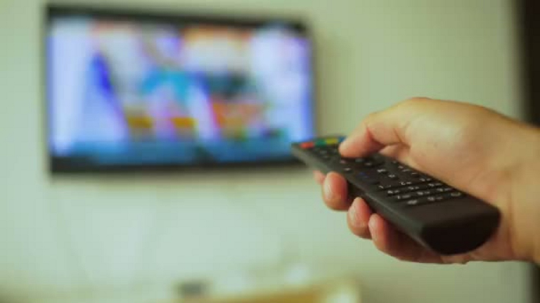What's Wrong With TV Commercials in Bangladesh
Depanjali Roy | 24 April 2021
People use various media forms, and all of them have the ability to influence one's perspective on any particular topic. The media is a great way to promote harmony, respect, peace, and brotherhood among communities but, instead, it's doing the complete opposite. Therefore, media, particularly content broadcasted on TV, should be regulated. There may be some debate on this since this can be considered censorship. However, the goal is not to control the media but to monitor its content, so it does not promote problematic ideals in the form of religious extremism, racism, misconceptions about certain communities or religions and their values and ideologies.
TV commercials play a crucial role in conveying a message to the general public. Although commercials last only about 1.5 to two minutes, they significantly impact society and can promote discrimination. For example, there was a Chinese TV commercial that was widely criticised for its racist portrayal. The commercial showed a black man going inside a washing machine and coming out as a fair-skinned Chinese man after using a particular brand's detergent. This depiction was highly derogatory towards the black community as the commercial implied that black people are "unclean."
Another infamous TV commercial promoted anti-religious statements. Adidas, a renowned sports clothing brand, presented wearing a veil as a "breach of freedom" and wearing fewer clothes as "basic freedom." The commercial was incredibly offensive to the Muslim community. Every religion has its norms and values, and as global citizens, everyone should respect these norms. Although the commercial was later taken down, the damage was already done since Muslim stereotypes were strengthened and further negativity about the community spread.
When it comes to Bangladeshi TV commercials, what people see is not what they get. There are many beauty products that assure fair skin, health drinks that guarantee increased height or weight, and food products that claim to be fat-free or contain high quantities of protein. In reality, none of these products delivers what they promise. Maggi, a prominent instant noodles brand in the country, can't be cooked in two minutes, and the nutrition levels are not as the commercial shows. Fair and Lovely, a popular cosmetic product that assures it can turn dark skin fair, can't prove its claims. The list goes on as countless products in the market don't fulfil the expectation set by their commercials.
Countries like India or the USA have strict laws to monitor and control the false publicity of commercials. Bangladesh has similar laws, yet they are not implemented. Chapter II Section 5(3)(g) of the Bangladesh Broadcast Act states to "promote accurate, informative and balanced programming." Chapter VII Section 33(1)(a) of the Advertising Code of Bangladesh Broadcast Act states that "all advertisements should be clearly identified."
Celebrities and influencers usually promote products while having no knowledge of their quality, value, or authenticity. These celebrities also have some responsibility towards society and its people. In India, the Consumer Protection Bill 2018 not only protects the interests of the consumers but also looks into the issues of false endorsement by celebrities. It fines the celebrity who promotes misleading advertisements up to 10 lakhs or issues a one-year ban on them. If the action is repeated, the fine can go up to 50 lakhs or result in a three-year ban. Such policy-making shows the government's concern for its people. However, it is unfair for celebrities to have to bear the entire responsibility. The agency and the team behind creating the commercials need to be held accountable as well.
Bangladesh Telecommunication Regulatory Commission (BTRC) is an independent commission of Bangladesh which regulates matters of telecommunication. On the other hand, Bangladesh Standard and Testing Institution (BSTI) controls the standard and quality of goods. Sometimes, the quality of products is questionable due to BSTI not doing its job correctly. There needs to be another board to link BTRC and BSTI. This regulation board can test if BTRC and BSTI follow all relevant advertisement codes or product quality standards. The board can then recommend if any changes are required. In this way, celebrities need not face criticism for false advertisements, and the issue of fines will be nullified. However, doubts remain on whether the regulation board will operate with accountability and efficiency.
Depanjali Roy, Program Assistant, Centre for Governance Studies (CGS).
Views in this article are author’s own and do not necessarily reflect CGS policy.
